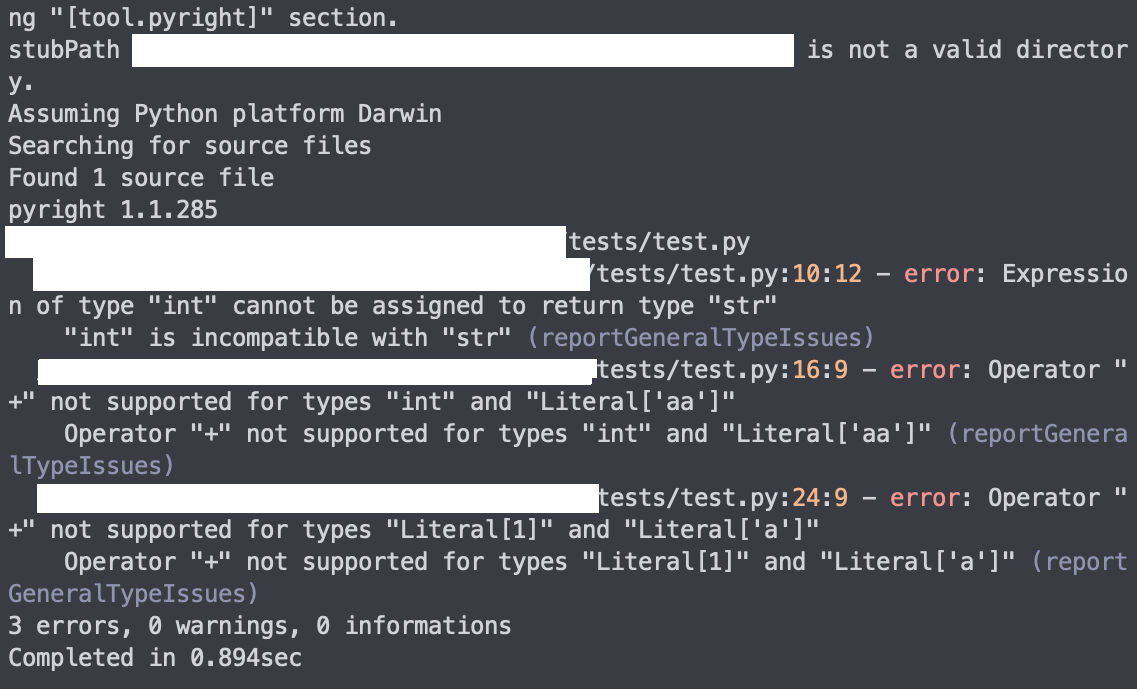pylyzer
⚡
pylyzer is a static code analyzer / language server for Python written in Rust.
Installation
cargo (rust package manager)
cargo install pylyzer
pip
pip install pylyzer
If installed this way, type resolution for the standard libraries is not available. If you want to use it, you need to install Erg.
curl -L https://github.com/mtshiba/ergup/raw/main/ergup.py | python3
What is the advantage over pylint, pyright, pytype, etc.?
- Performance
On average, pylyzer can inspect Python scripts more than 100 times faster than pytype and pyright 1. This is largely due to the fact that pylyzer is implemented in Rust.
- Detailed analysis
pylyzer can do more than the type checking. For example, it can detect out-of-bounds accesses to lists and accesses to nonexistent keys in dicts.
- Reports readability
While pytype/pyright's error reports are illegible, pylyzer shows where the error occurred and provides clear error messages.
pylyzer
pyright
How it works
pylyzer uses the type checker of the Erg programming language internally. This language is a transpiled language that targets Python, and has a static type system.
pylyzer converts Python ASTs to Erg ASTs and passes them to Erg's type checker. It then displays the results with appropriate modifications.
Limitations
-
pylyzer's type inspector only assumes (potentially) statically typed code, so you cannot check any code uses reflections, such as
exec,setattr, etc. -
Type checking of compound types such as Union types is not supported yet (will be implemented soon).
-
pylyzer (= Erg's type system) has its own type declarations for the Python standard APIs. Typing of all APIs is not complete and may result in an error that such an API does not exist.
TODOs
- type checking
- variable
- operator
- function/method
- class
- type inferring
- variable
- operator
- function/method
- class
- builtin modules resolving (partially)
- local scripts resolving
- local packages resolving
- compound type checking
- type assertion
1 The performance test was conducted on MacBook (Early 2016) with 1.1 GHz Intel Core m3 processor and 8 GB 1867 MHz LPDDR3 memory.





